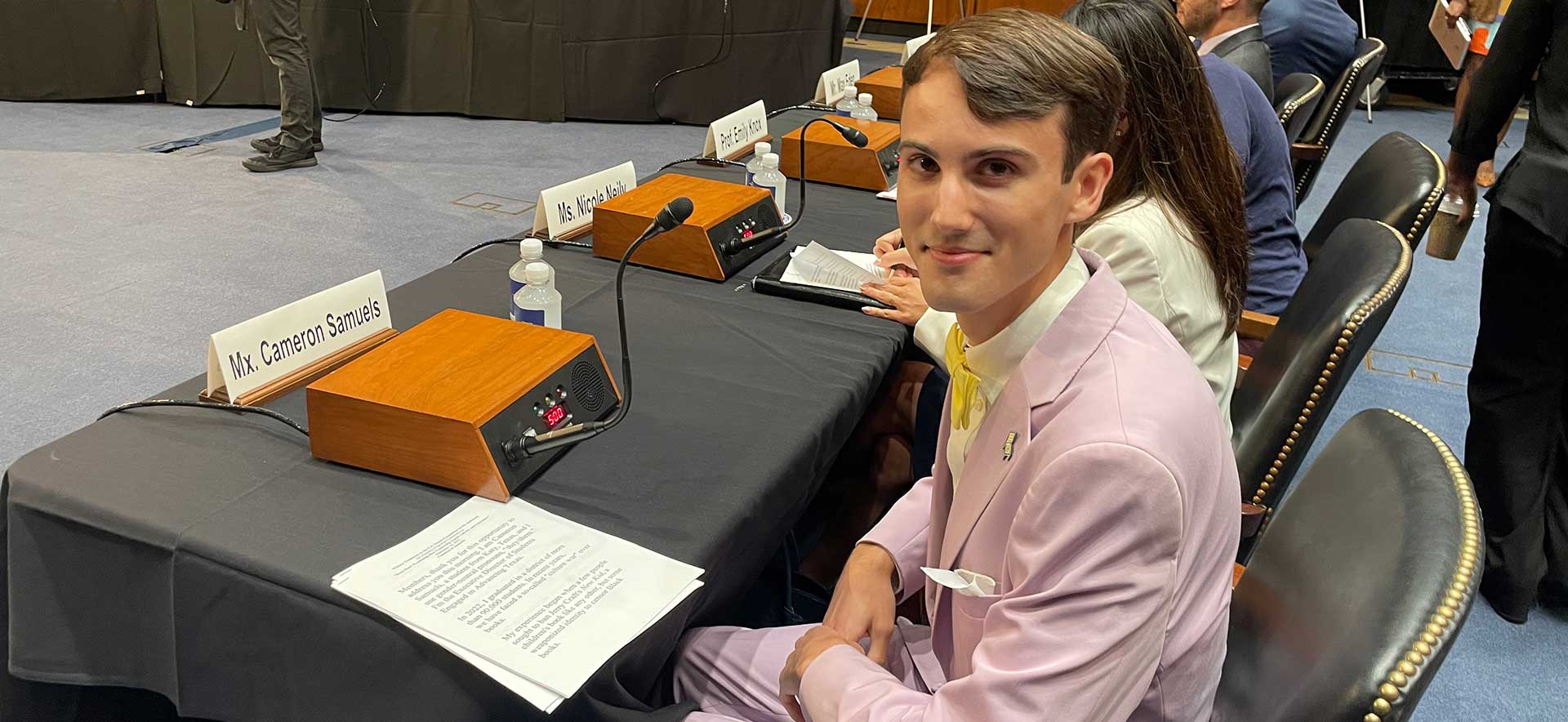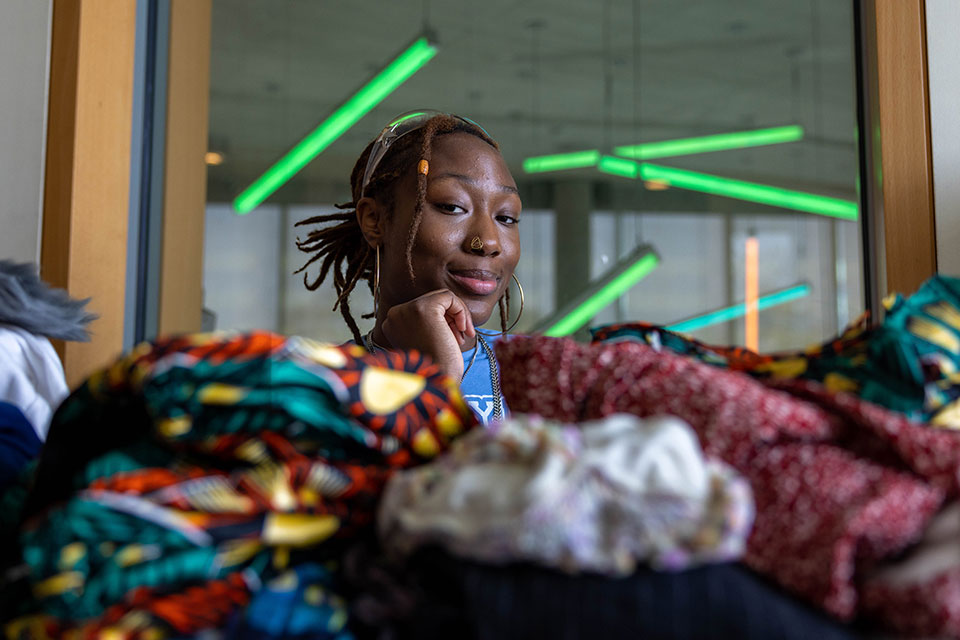Cameron Samuels '26 testifies before the U.S. Senate Judiciary Committee
By Kennedy Ryan
September 14, 2023
On Tuesday Sept. 12, Cameron Samuels ’26, Executive Director of Students Engaged in Advancing Texas (SEAT), testified before the U.S. Senate Judiciary Committee, addressing book bans affecting students across the country.
Since high school, Samuels has been advocating for LGTBQIA+ rights, student rights against book bans, and the removal of censorship in school systems. As a Texas native, their focus is on improving book banning and censorship policies in Texas and beyond. Brandeis Stories spoke with Samuels about their experience testifying and passion for this cause.
How would you describe your experience testifying in front of the Senate?
I am humbled to have had a seat at the table in our nation’s policymaking, and my journey to this platform certainly was not easy. Growing up as an introverted child with disabilities, facing bullying, and being socially unable to stand up for myself, I never could have imagined the confident leader I am today. I never could have imagined that I would be invited to testify before the U.S. Senate Judiciary Committee on an issue so personal to me.
Why is it important that students’ voices are heard?
Students are the primary stakeholders of our education, so we deserve to be the decision-makers of our everyday experiences. In K-12 education, students should be collaborating with families and educators to determine solutions that best support the student. Our voices are powerful, especially coming from my home state of Texas with 8 million people under the age of 20. We are a powerful generation, and it’s time we reclaim the narrative about issues that directly affect our futures as young people.
Why does this initiative mean so much to you?
Libraries are lifelines for many students who cannot find themselves in the classroom or at home. Libraries are centers for voluntary inquiry that contributes to students’ personal growth and understanding of the world. Texas is the leading nation for book banning, and book challenges often target underrepresented narratives. Students should find themselves more in school libraries than in lists of challenged books.



